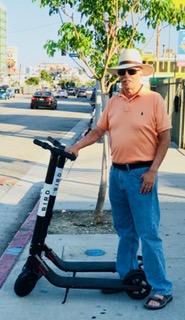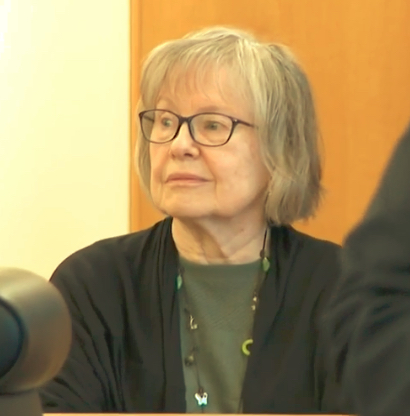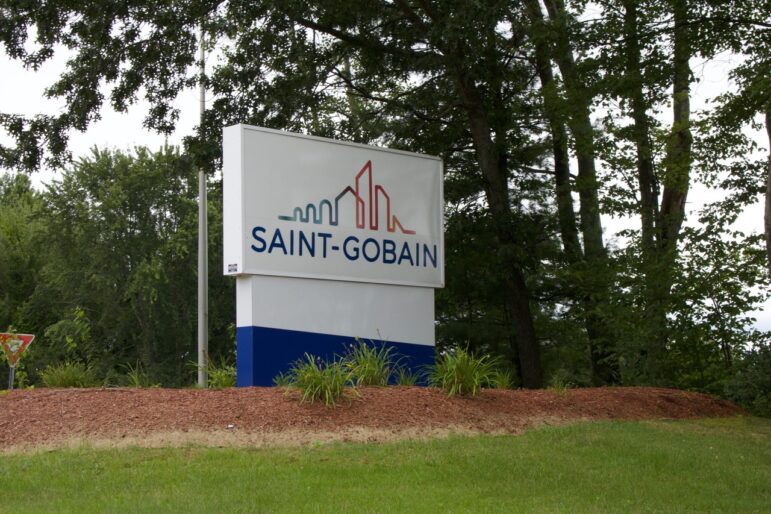By Mark Okrant, NH Travel Guru
You’ve just traveled many miles from home and arrived at a large city. The train, bus, or ferry has just dropped you a mile or more from your intended destination. As my current trip to Los Angeles has shown me, there are now alternatives to a short, albeit pricey cab ride or a hot, sweaty walk.
One of the more interesting modes to appear recently in the greater LA area is the motorized scooter. In fact, in US cities from greater Boston to Los Angeles, these small personal vehicles are transporting locals and visitors along the sides of busy main streets and neighborhood roads.
Developed by Travis VanderZanden, Santa Monica-based Bird scooters debuted on September 1, 2017. The tiny vehicles immediately offered transportation for underserved community members and visitors, a bold step toward transit equity in cities across the country.
The system is a simple one. The prospective user downloads an app on her/his cell phone. Using the app, a QR code on the scooter is scanned. After this action is taken, the company charges the rider’s credit card. When the payment has been confirmed, the scooter is automatically unlocked, and the system begins tracking the rider’s journey.
Two elements of this system have enhanced the scooters’ popularity, and created early—and as yet unresolved—controversy. First is the low cost to rent a scooter. Bird charges one dollar, plus ten to fifteen cents for each minute of use. The company’s two principal rivals, Lime (Uber) and Spin, employ similar systems.

Mark Okrant
The second popular feature is convenience. When a rider reaches a final destination, the scooter may be left on a sidewalk virtually anywhere. There is no dock to locate, nor a telephone number to call. The scooter is simply abandoned at a place that is convenient to the rider.
Herein lies part of the controversy. Several communities have placed a temporary ban on motorized scooters. In part, this action is a response to the failure of companies to obtain appropriate permission to operate. Certainly, the absence of a negotiated method to convert Bird, Lime, and Spin into revenue sources has been a large factor as well.
However, it is the safety issue that presents a principal cause for concern. As cities are brought into the coming Micromobility Revolution (source: Populus), the new vehicle and pedestrian patterns it creates will need to be addressed.
As an example, on a recent mile-plus walk in Culver City with my daughter, we encountered countless Birds simply left in haphazard fashion along sidewalks. In one instance, an operator had ridden a scooter for blocks on the sidewalk, then vacated it on the corner of a very busy intersection. Had someone with limited mobility been in the vicinity, that single thoughtless act would have proven problematic, and potentially catastrophic.
Bird (33 US cities), Lime (75), Spin (19), and other forms of personal conveyance appear to be here to stay. Certainly, these need to receive strong consideration while transportation specialists plan for the future of cities, and how they serve resident and visitor populations alike.
In April 2017, after forty years as an educator, researcher, consultant, and mystery writer, Mark Okrant joined IndepthNH.org. Mark shares his insight about the travel and tourism industry, focusing upon its importance to New Hampshire. From time to time, he’ll spin a humorous story or two, always looking to educate us about the industry he loves.
Learn more about Mark’s tourism-based Kary Turnell murder mystery series by visiting www.markokrant.com.
For information on current things to do in New Hampshire, go to:





